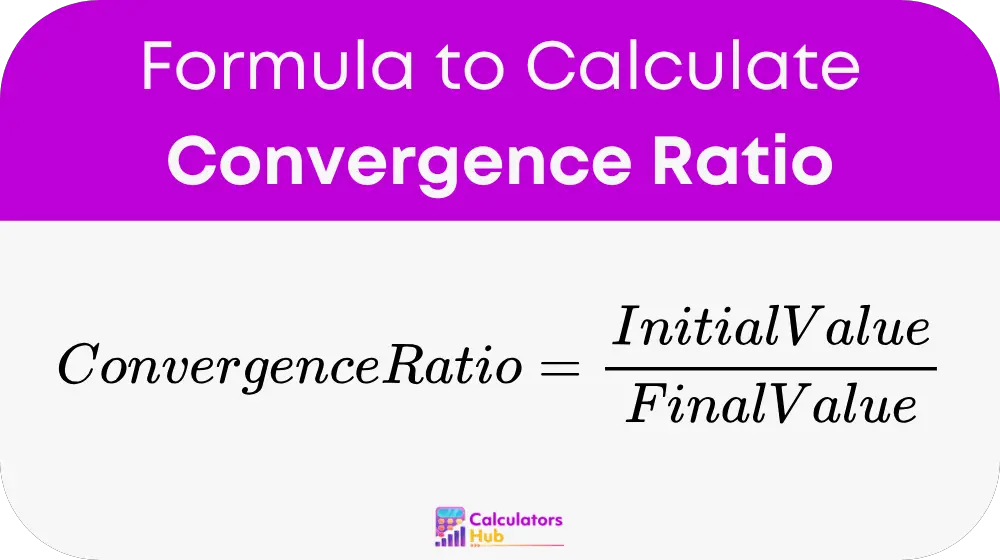The Convergence Ratio Calculator determines the ratio of an initial value to a final value after convergence. It is commonly used in fields like engineering, mathematics, and physics to quantify the reduction or progression of a parameter over time or through a process. This tool is essential for understanding system efficiencies, iterative solutions, or physical changes in variables.
Formula of Convergence Ratio Calculator
The convergence ratio is calculated using the following formula:

Detailed Formula Components
- Initial Value:
- The starting value of the parameter being measured. This could be size, volume, distance, or any other quantitative metric.
- Final Value:
- The value of the parameter after the process of convergence is complete.
- Convergence Ratio:
- The ratio that quantifies how much the parameter has changed relative to its initial value.
Importance:
The convergence ratio provides a clear, numerical insight into the extent of change or stability achieved during a process. A higher ratio typically indicates significant change, while a ratio near 1 suggests minimal change.
General Terms Table
Below is a table of typical values to provide a quick reference for convergence ratios:
| Initial Value | Final Value | Convergence Ratio |
|---|---|---|
| 100 | 50 | 100 / 50 = 2 |
| 80 | 40 | 80 / 40 = 2 |
| 60 | 30 | 60 / 30 = 2 |
| 50 | 25 | 50 / 25 = 2 |
| 120 | 60 | 120 / 60 = 2 |
This table highlights a consistent convergence ratio when the final value is half the initial value.
Example of Convergence Ratio Calculator
Let’s calculate the convergence ratio for a system with the following parameters:
- Initial Value: 150
- Final Value: 50
Step 1: Apply the Formula
Convergence Ratio = Initial Value / Final Value
Step 2: Calculation
Convergence Ratio = 150 / 50
Convergence Ratio = 3
Result:
The convergence ratio is 3, indicating that the initial value is three times the final value.
FAQs
The convergence ratio helps measure the degree of change between two states or values, making it useful in evaluating efficiency, system adjustments, or iterative processes.
In engineering, it can quantify system optimizations. In mathematics, it assesses the efficiency of iterative solutions.
A convergence ratio of 1 indicates no change between the initial and final values, signifying complete stability or uniformity in the measured parameter.